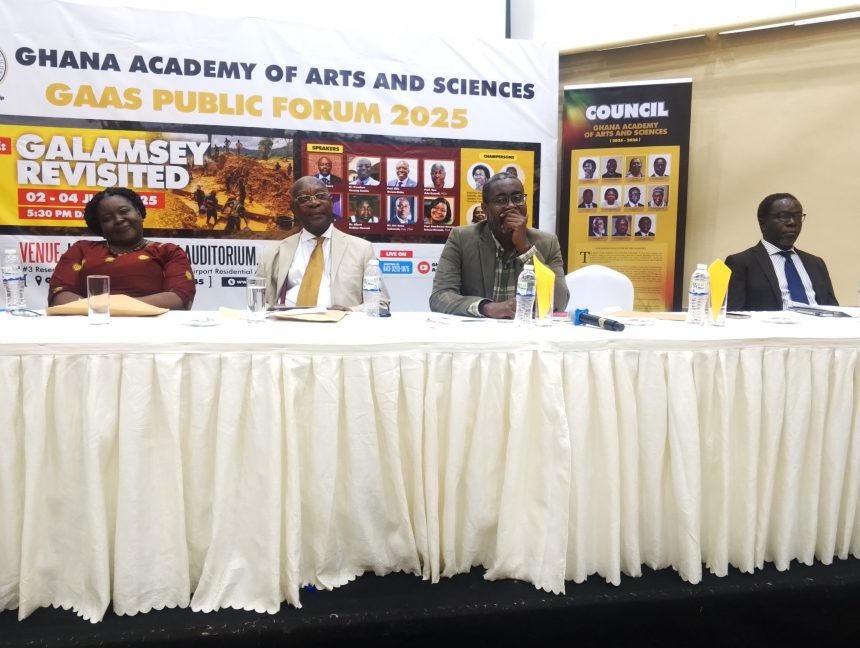Fisheries Scientist and freshwater aquatic ecologist Professor Mamaa Entsua-Mensah has called for collective responsibility across all levels of society in addressing the menace of galamsey (illegal mining), amid the alarming rate of environmental degradation in the country.
Her call comes on the heels of a three-day public forum organised by the Ghana Academy of Arts and Sciences (GAAS) on the theme “Galamsey Revisited,” aimed at raising public awareness about the devastating impact of unregulated mining on the nation’s sustainable development.
Delivering the keynote address on Day 3 of the forum, Prof. Entsua-Mensah emphasised that public institutions and environmental agencies must be seen taking concrete, science-backed steps to restore depleted forests and polluted water bodies affected by illegal mining. She also urged strict enforcement of environmental laws to sanction individuals and groups involved in these harmful activities.
“Our regulatory bodies and agencies in the environmental sector must urgently implement measures—grounded in scientific research—to restore our severely depleted natural resources, which now threaten our collective survival as a nation,” she said.
“Forests, water resources, and land are critical components of both human survival and the broader biodiversity ecosystem. It is, therefore, essential that we develop a secure and sustainable operational agenda to prevent these resources from being sacrificed on the altar of economic expediency. Law enforcement must act decisively to prosecute unpatriotic citizens and their collaborators without political or traditional interference, to deter these environmental terrorists.”
Also speaking at the forum, Professor Yaw Adu-Gyamfi, a Professor of Anaesthesiology, raised concerns about the alarming toll illegal mining is taking on Ghana’s health system. He explained that the chemicals dumped into water bodies and the environment by illegal miners are contributing to a rise in serious illnesses across the country.
Prof. Adu-Gyamfi further called for a review of the country’s mining licensing regime, which he said places too much control in the hands of central government while sidelining traditional and community stakeholders.
“It is true that mining plays a vital role in the economy of a developing country like Ghana. However, we must ensure that economic gains do not come at the expense of public health and environmental sustainability,” he noted.
“We need to rethink the current licensing model, which concentrates decision-making power in central government while ignoring the role of local stakeholders such as chiefs and community leaders—people who are directly affected by the environmental consequences of mining. Marginalizing these groups limits their ability to serve as responsible custodians of the environment.”
The three-day forum ended with a passionate call to action. Participants were encouraged to become active changemakers, holding duty bearers accountable and advocating for responsible, sustainable management of Ghana’s natural resources for the benefit of both current and future generations.
Story by: Sika Togoh | univers.ug.edu.gh





